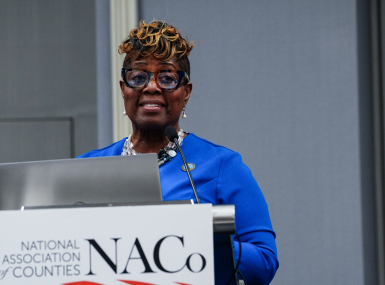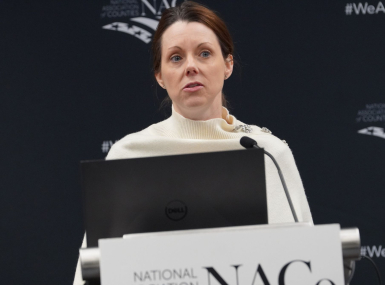FCC launches the Affordable Connectivity Program
Author

Seamus Dowdall
Upcoming Events
Related News

Key Takeaways
On December 31, the FCC officially launched the Affordable Connectivity Program (ACP), a $14.2 billion program enacted under the bipartisan Infrastructure Investment and Jobs Act (IIJA) that replaces the Emergency Broadband Benefit (EBB) program authorized under COVID relief legislation.
The ACP provides a long-term investment in broadband affordability and ensures households can access high-speed internet services that are essential for participation in virtual education, telehealth, work and more. The transition from the EBB program to ACP is now underway, and all households fully enrolled in the EBB program as of December 31, 2021, will continue to receive their current monthly benefit until March 1, 2022. Any household not enrolled in the EBB program as of December 31, 2021, will now need to enroll under the ACP, which they can do so here.
The ACP provides a discount of up to $30 per month toward internet service for eligible households and up to $75 per month for households on qualifying Tribal lands. Eligible households can also receive a one-time discount of up to $100 to purchase a laptop, desktop computer, or tablet from participating providers if they contribute more than $10 and less than $50 toward the purchase price. More information about steps current EBB recipients must take to continue receiving the ACP benefit after March 1, 2022, will be available in the coming weeks.
The FCC is offering outreach materials and resources for all stakeholders interested in spreading awareness of the program. Counties are strongly encouraged to utilize these resources and communicate changes to affected residents to help ensure eligible households continue to receive this important benefit.
Additional Resources
- NACo Blog: FCC opens comment period for Affordable Connectivity Program established under IIJA (naco.org)
- NACo Blog: NACo teams with FCC to spread awareness of the Emergency Broadband Benefit program
- NACo Blog: FCC announces new resources and funding opportunities aimed at closing the homework gap during the COVID-19 pandemic (naco.org)
Resource
Outreach Toolkit for Counties: The FCC’s Affordable Connectivity Program

Related News

Prince William County transforms crisis care through "No Wrong Door" approach
Prince William County, Va.’s Crisis Receiving Center is bridging the gap between emergency room care and traditional outpatient care in behavioral crisis response and reducing burden on local law enforcement and hospitals.

Federal-level child welfare priorities center on supporting foster youth, families
Child welfare experts outlined current priorities at the federal level, including better supporting foster care youth who age out of the system and recruiting more foster parents, at NACo’s Human Services and Education Policy Steering Committee meeting.

House Agriculture Committee introduces 2026 Farm Bill
On February 13, House Agriculture Committee Chairman G.T. Thompson (R-Pa.-15) introduced the House version of the 2026 Farm Bill, the Farm, Food, and National Security Act of 2026.
